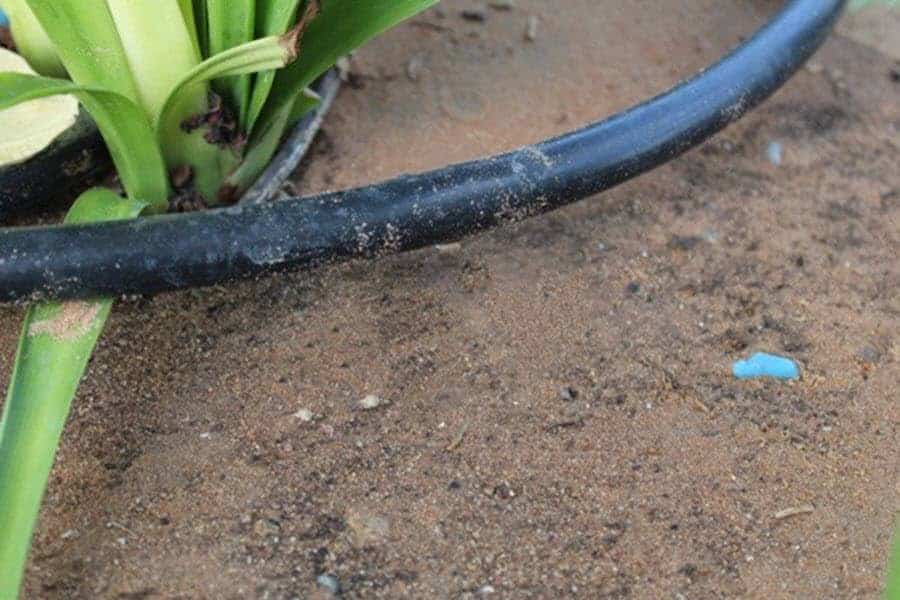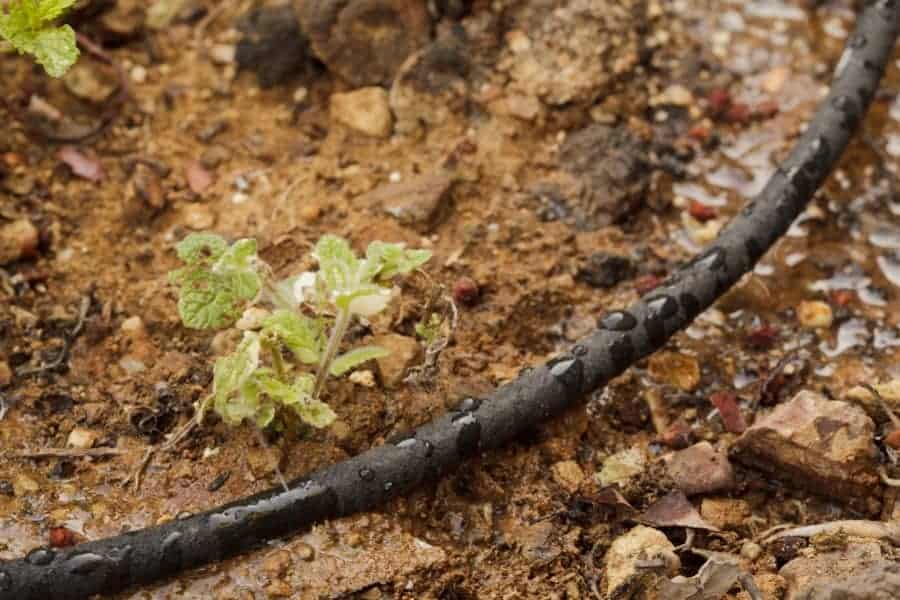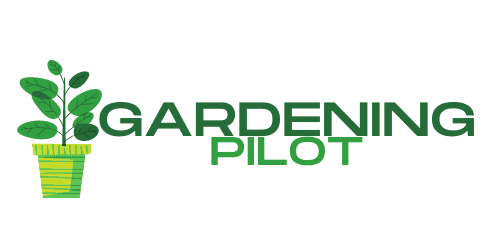
Investing in a quality soaker hose is perhaps the most efficient and economical way to water vegetable gardens. They not only provide hands-free irrigation to plants but helps conserve water too. For soaker hoses, the choices are unlimited, which can be overwhelming at times.
To save you the tiresome activity of researching reliable options, we have reviewed the five best soaker hoses you can buy for your vegetable gardens.
How To Choose Soaker Hoses For Organic Gardens
Since there is no ‘one best soaker hose,’ you must be able to choose an ideal hose that fulfills your garden needs, come within a budget, and favor personal preference.
If you are wondering how to get a soaker hose that is just right for you, consider the following factors when making the buying decision.
Material
The hose material affects its durability and water quality to a greater extent. Generally, soaker hoses are made of polyurethane, recycled rubber, and polyvinyl chloride (PVC.)
Although the soaker hoses made from tire rubber are durable and last long, they might leech chemicals into your garden. FDA-grade polyurethane hoses are toxins-free, therefore, best suited for edible crops.
PVC hoses are relatively inexpensive, but we don’t recommend them for organic gardens. They have been tested for elevated lead, bromine, antimony, and phthalate levels.
Length
The length of a soaker hose is probably the most important of all. You want it to adequately cover your garden size. Soaker hoses come in different sizes, ranging from 15 to 100 feet.
It’s self-explanatory, but we must tell you, the longer the hose, the more pressure it will require to deliver water efficiently.
Hose Design
Soaker hoses mainly come in two types – flat and round-shaped. A flat soaker hose is ideal for watering straight garden rows. However, if used zigzagged or looped around the lawn, it starts to develop kinks that may restrict the water flow.
Round soaker hoses are versatile and can be employed in straight rows and curved around the bushes or trees. They are comparatively expensive but offer more durability and flexibility than flat soaker hoses.
Hose Perforation Size
Although you don’t get to choose the perforation size of a hose, it’s beneficial to keep that in the back of your mind. You will often find it a drawback in hoses that either have big holes or are too small.
5 Best Soaker Hose for Vegetable Gardens
Following are some of the best soaker hoses suited for organic gardens. As you read through different options and compare the pros and cons, you will find a hose that is optimal for your requirements.
Premium 1/2″ Soaker Hose – Top Recommendation
Available sizes: 20 ft, 50 ft, and 100 ft
Gardener’s Supply Company is known for manufacturing NSF-certified and drinking-water grade soaker hoses. The toxins-free and non-leaching properties make them an ideal choice for vegetable gardens.
It is made of UV-resistant polyurethane that ensures the hose doesn’t get brittle in the sun. The soaker hose provides uniform weeping and deep distribution of water. It comes with chrome-plated brass fittings that guarantee no leaks. We love the brown color of the hose, which truly makes it unobtrusive in gardens.
Pros:
- Free from toxins like phthalates, BPA, and lead.
- Meets NSF drinking-water standards
- Flexible enough to lay flat or snake around plants
- Made from UV-resistant polyurethane
- Chrome-plated brass fittings
Cons:
- Somewhat bigger holes
- Hard water may cause build-up in the hose
Water Right 700 Series Soaker Hose
Available sizes: 25 ft, 50 ft, and 100 ft
Made from FDA-grade UV stabilized polyurethane, the Water Right soaker hose is just everything a vegetable garden hose needs to be. It’s non-toxic and comes with lead-free brass fittings.
This soaker hose has a phenomenal bend radius making it flexible enough to loop back and forth without preventing water flow. It’s undoubtedly durable and a sturdy item you can count on to last longer.
Water Right soaker hoses are specially engineered with a soft microcellular polyurethane foam that enables optimum weeping. If you are adamant about saving water, you are going to love this slow dripping hose.
Pros:
- Non-toxic: lead, phthalate, and BPA-free
- Made from FDA grade non-leaching polyurethane
- It comes with strain relief to prevent hose kink
- Weeps delicately and evenly
- Flexible and easily positioned
- 5-year guarantee
Cons:
- Expensive
- Smaller holes
Swan Sprinkler Soaker Hose
Available sizes: 50 ft
If you want a value for money offer, look no further than Swan’s sprinkler cum soaker hose. It’s a lightweight hose that is known for its durability. Designed with six perforations per foot, it optimally enables the uniform watering pattern to fulfill the irrigation requirements.
This soaker hose is made of recycled rubber and claims to meet lead-free standards under the Federal Safe Drinking Water Act. It comes with plastic couplings that come in handy for draining. Swan sprinkler soaker hose is more like a traditional hose but a heavier-duty version.
Pros:
- Lead-free
- Sprinkler and soaker in one
- Value for money
- 7 years warranty
Cons:
- Limited sizes
- Water distribution isn’t as good as promised
Rocky Mountain Goods Soaker Hose
Available sizes: 25-Feet by 1/2-inch, 25-Feet by 5/8-Inch, 50-Feet by 5/8-Inch
This one holds the highest ratings for best soaker hoses on Amazon. Rocky Mountain is a reliable brand known for its heavy-duty hoses designed to last long. It’s sturdy enough to handle the rough use without sustaining any damage.
The hose comes with quick reattach reinforce fittings that allow you to connect additional hoses to increase the length. It has a plastic end cap that comes in handy to seal off the male end as required. Probably the best thing about Rocky mountain soaker hose is its metal fittings.
As we were researching this product, what caught our attention was the numerous comments about the leaking issue in the hose. Understandably, some units might have manufacturing defects that led to leaks. But overall, it’s a heavy-duty hose that cannot be easily busted unless exposed to consistent high pressure, kinks, and frequent foot traffic.
Pros:
- 7-year warranty
- Made from heavy-duty rubber
- Comes with quick attach reinforced fittings
Cons:
- Frequent leaking complaints
- Prone to kinks
Dramm 17010 ColorStorm Premium Soaker Hose
Available sizes: 25 ft and 50 ft
Another high-quality soaker hose from a reliable manufacturer. If you can count on any soaker hose for uniform water distribution – from start to end – it’s Dramm ColorStorm soaker hose. It’s made of premium, high-grade rubber that provides 50% thicker walls. It helps reduce water waste, lower evaporation, and helps eliminate the ‘geyser effect.’
It comes with nickel-plated brass couplings that are crush-proof and provides a leak-proof connection. Although it’s a bit high on price, we believe it’s justified for the lifetime warranty. Undoubtedly, an ideal soaker hose to use zigzag around your vegetable garden.
Pros:
- Durable build quality
- 50% thick compared to traditional hose
- Save 70% water
- Lifetime warranty
Cons:
- Expensive
- Plastic caps at the ends could be improved.
How to Install and Maintain Soaker Hoses In Organic Gardens

Connecting a soaker hose to your garden is easy. However, there are a few things you must keep in mind.
- If you have brought home a new hose, unpackage and lay it on the ground. Initially, uncoiling and straightening it out may take some effort.
- Remove the cap from the closed end of the hose, and connect it to your faucet or water source.
- Run full pressure water through it for 1-2 minutes. It will flush out any debris or chemical compounds resting in the soaker hose.
- When laying out the hose, loop it around the plants that need extra irrigation. Keep a few inches around 5 to 10 cm between the hose and stems.
Use Soaker Hoses Effectively and Make Them Last For Years
- The primary reason for hoses leaking is kinking. If your vegetable garden requires snaking the hose or use in uneven, curvy places, it’s crucial to get a kink-resistant soaker hose.
- Exposure to intense sunlight also contributes to the premature deterioration of the hose. The best way to prevent sun damage is to cover the hose with 2-3 inches of mulch.
- During extreme weather conditions, it’s best to store the hose in a shed or garage when not in use. It significantly reduces the impact and keeps your hose from wreaking, ultimately increasing its life span.
- How long to run a soaker hose is often the question many peoples wants to know. Although it depends on the plant’s need, you must run your hose until the soil is damp (not wet) to a depth of 6 to 12 inches.
- You can attach a timer to your hose to know how long it typically takes for the desired results. Once identified, all you have to do is, run water for the specified timing.
Are Rubber Soaker Hoses Safe for Watering Veggies?
The idea of using rubber soaker hoses for organic gardens often raises the question of safety.
Rubber hoses are tested for containing heavy metals such as lead, cadmium, and PAH. Understandably, it is something to be concerned about. Nobody wants harmful chemical substances to leach into their vegetable garden. But there is a catch that makes rubber soaker hoses relatively safe.
Whether your plants take enough of these chemicals to produce toxic results will depend on soil PH, temperature, plant species, size of the rubber particles, and the chemical composition of the water.
Studies show that vegetables grown in contaminated soil may take some of these nasty compounds under certain conditions. However, the uptake amounts are typically low and under the established health standards.
NOTE: If your native soil already contains heavy metals from years of household runoff, we suggest you buy FDA-grade polyurethane soaker hoses. Of course, they are expensive compared to standard rubber hoses. But they are toxin-free and help your garden remain genuinely organic, so the high upfront cost is worth it.
Related Questions
Q. Are soaker hoses essential for growing vegetables?
Soaker hoses aren’t necessary, but you can install them if you want to claim the benefits they offer. It helps you conserve water by reducing wastage through evaporation and other processes. A soaker hose slowly and uniformly waters the root zone, which is perhaps the most efficient way to fulfill the irrigation requirements of a plant.
Q. How many gallons of water does a soaker hose use per hour?
It depends on the hose type, length, diameter, and coverage area. Assuming a general idea, if a hose uses 6 gallons per foot-of-hose per hour, a 50 feet soaker hose will spread easily 30 gallons of water per hour.
However, these calculations aren’t much of a use. What matters is the amount of water your plants need to flourish.
Q. How to choose the best soaker hose for vegetable gardens?
When it comes to soaker hoses, the one-size-fits-all approach doesn’t work. You must choose a hose based on your requirements.
Such as, if you live in an area that experiences extreme heat during the daytime, you should get a UV-resistant soaker hose. Or, if you plan to position your hose zigzag, opt for a kink-resistant hose, preferably round shaped. Similarly, it’s wise to buy BPA-free hoses when edible crops are concerned as they are non-leaching and therefore an ideal choice.
Final Words
Soaker hoses mentioned above are among the best and most reliable options for vegetable gardens. Although there is an abundance of hoses, the ones truly meant for organic gardening are fewer. Yes, we are talking about the FDA-grade, non-toxic hoses.
Hoses from Gardener’s Supply Company and Water Right are most suited for food plants. In the end, the choice is yours, so apply discernment and make a favorable buying decision.
